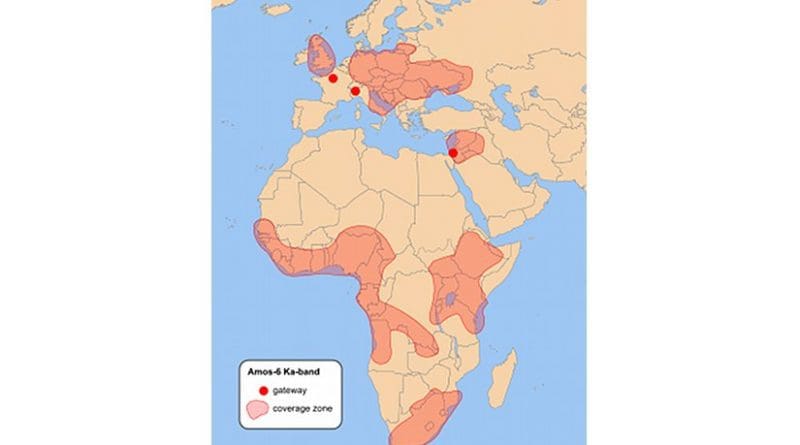Failed Rocket Was Carrying Facebook Satellite To Give Africa The Internet
By EurActiv
By Matthew Tempest
(EurActiv) — The space rocket which exploded before take-off yesterday (1 September) was carrying a satellite Facebook intended to use to connect sub-Saharan Africa to the Internet.
Whilst many critics have had doubts about the plan of founder Mark Zuckerberg to provide web access to the developing world, the destruction of the SpaceX rocket and its cargo will set the plan back many months, if not years.
The explosion of the Falcon 9 rocket on the launchpad at NASA’s Cape Canaveral Air Force Station in Florida also saw the destruction of its AMOS-6 satellite, manufactured by an Israeli firm, but leased to Facebook through a French company.
It was intended to provide transmissions for sub-Saharan Africa as part of Zuckerberg’s controversial Internet.org project.
Zuckerberg by coincidence was in Africa when the news broke.
In a statement on his Facebook page, he called the malfunction – in which no one was injured – “a deep disappointment”.
Critics have accused the plan as philanthropic cover for making Facebook an early player in what could be a huge internet market in Africa.
His scheme has already been banned in India for breaching ‘net neutrality’, as Facebook was then the gatekeeper to which sites could be accessed.
Facebook and Eutelsat had leased the entire bandwith capability of the AMOS satellite for five years, intending to connect Africans with basic internet services such as weather and news targeted at older and slower smartphones.
Facebook has favoured satellites, whilst Google is pushing ahead with the concept of high-altitude balloons.
In his statement, Zuckerberg appeared to put the blame on the blast on SpaceX, and indirectly its founder, rival internet entrepreneur Elon Mus.
He wrote,“As I’m here in Africa, I’m deeply disappointed to hear that SpaceX’s launch failure destroyed our satellite that would have provided connectivity to so many entrepreneurs and everyone else across the continent.
“Fortunately, we have developed other technologies like Aquila that will connect people as well.
“We remain committed to our mission of connecting everyone, and we will keep working until everyone has the opportunities this satellite would have provided.”
Aquila is a solar-power drone that will be used to beam the Internet into remote areas. Facebook completed its first successful Aquila flight in June.
Zuckerberg refused to put a timeline on how long the project might now take to get back on its feet.
Asked by a Facebook user if the satellite was insured, he replied, “The problem isn’t the money; it’s that now it may take longer to connect people.
The Facebook internet project, called Internet.org was launched in 2013, with Zuckberg declaring that online connectivity was a “human right.”
The idea was for a limited number of free services, including Facebook, to educate users on how the internet might be useful – such as weather forecasts for farmers, and micro-payments.
A limited number of platforms included Facebook, Wikipedia, Bing search (but not Google), Accuweather and Ask.com
It was later named as the “Free Basics” platform. However, last year India banned the service, stating it breached net neutrality.
At least two surveys have found that in parts of the developing world, users thought ‘Facebook’ and the ‘internet’ were either synonymous, or did not know they were on the internet when they were using the social media platform.
For example, in Nigeria 9% of Facebook users said they “did not use the internet.”
Facebook has around 1.4 billion users worldwide. Most of the next billion users globally who connect to the internet are expected to do so largely through smartphones.

